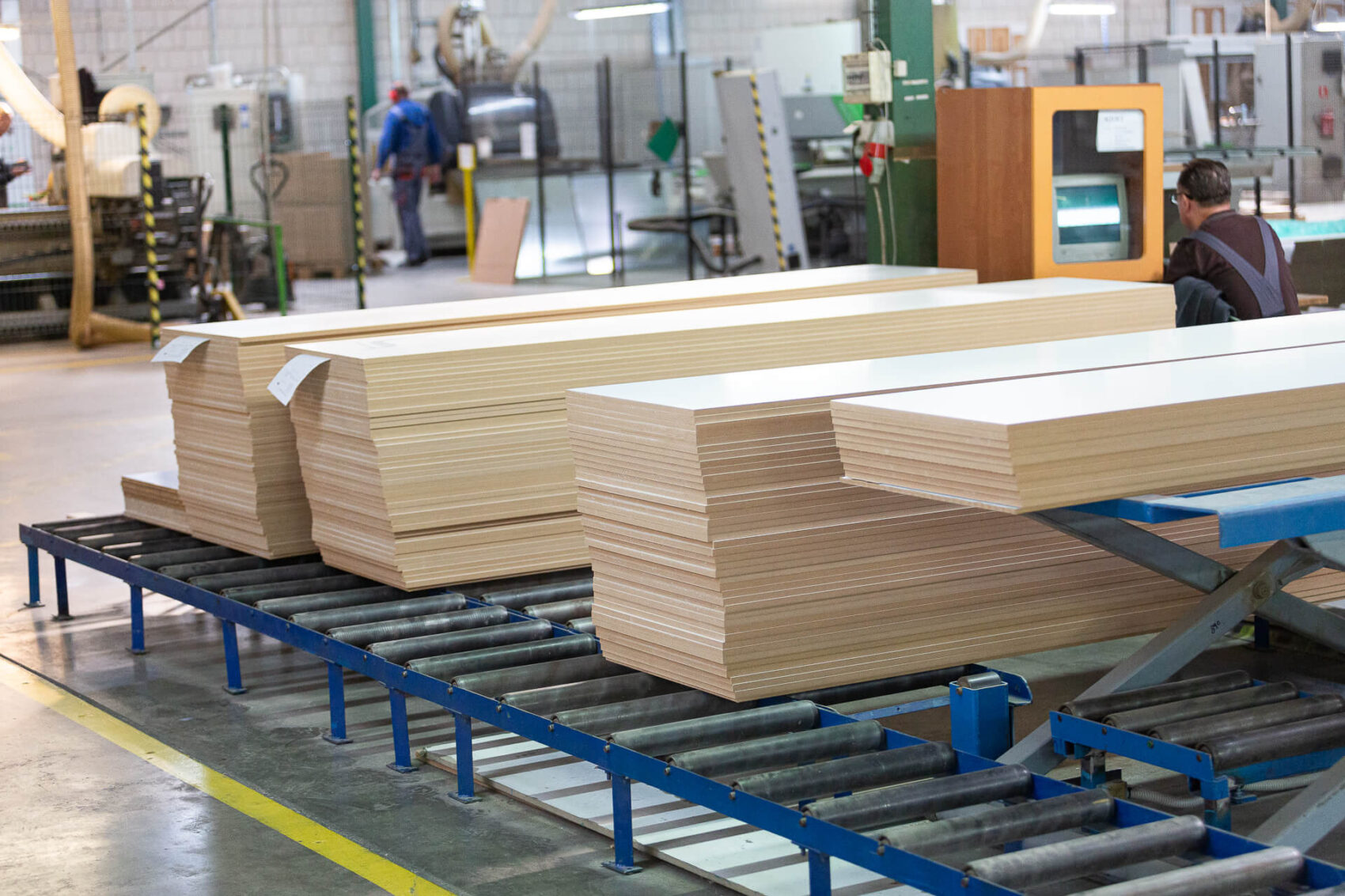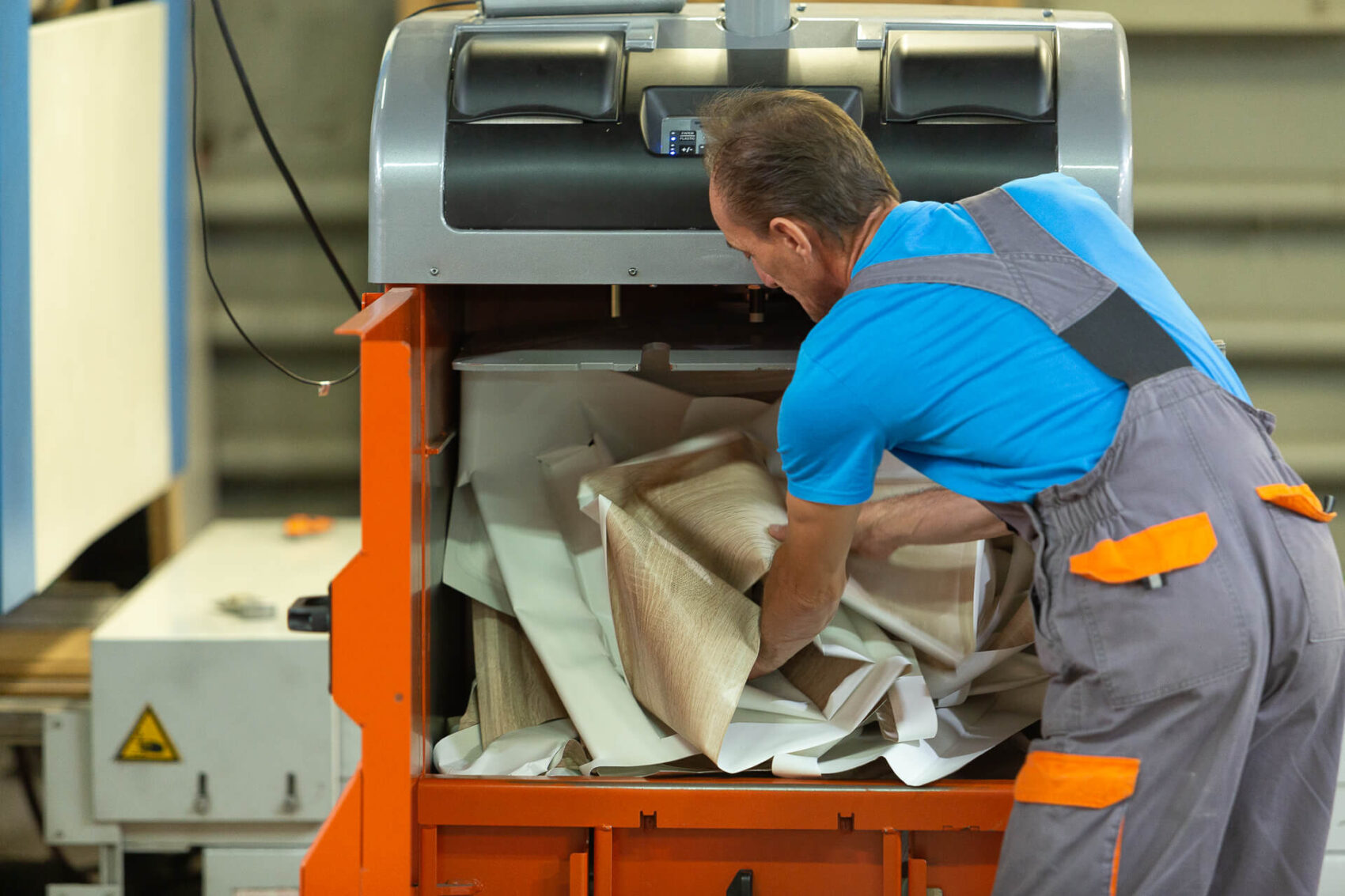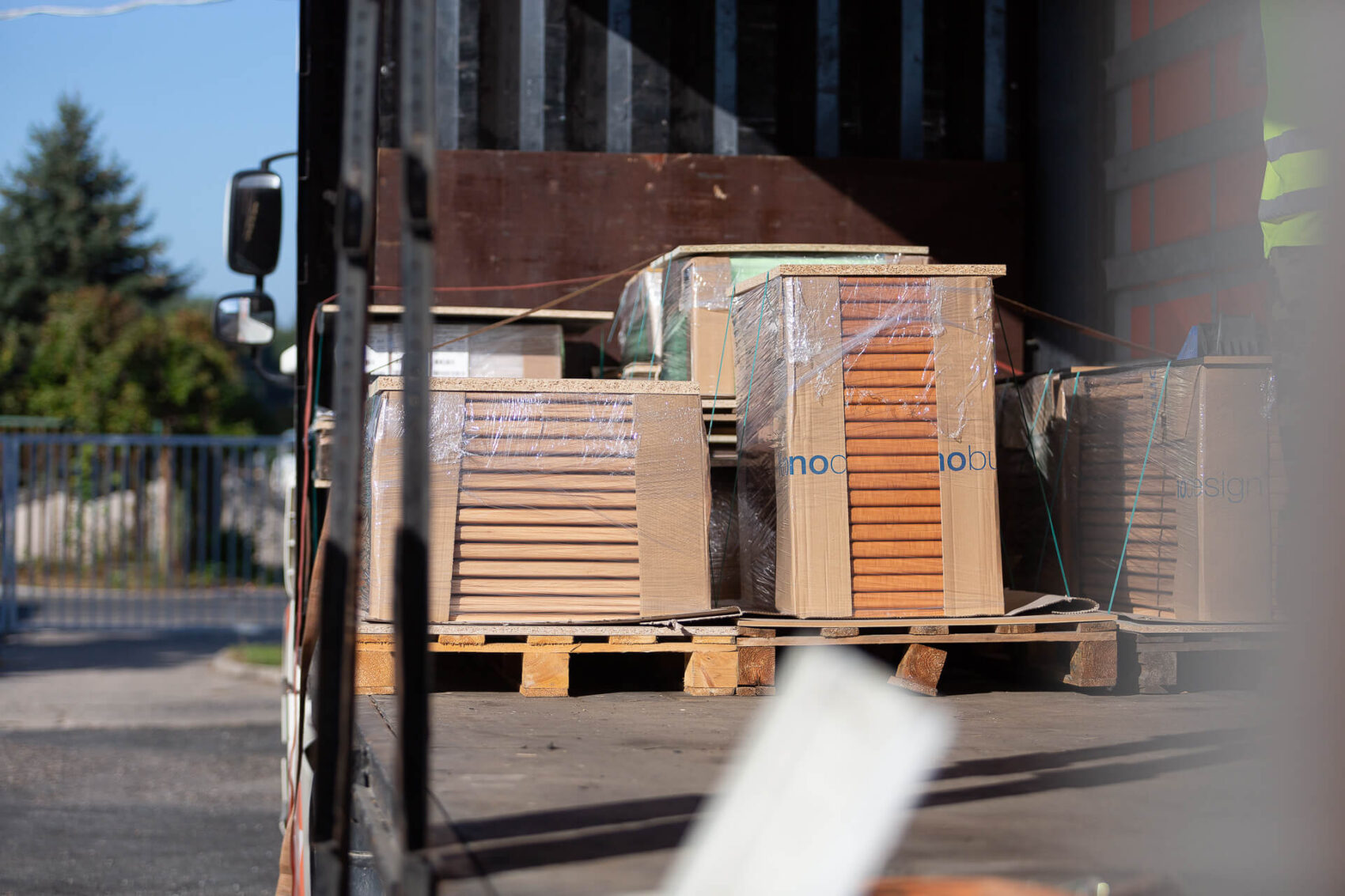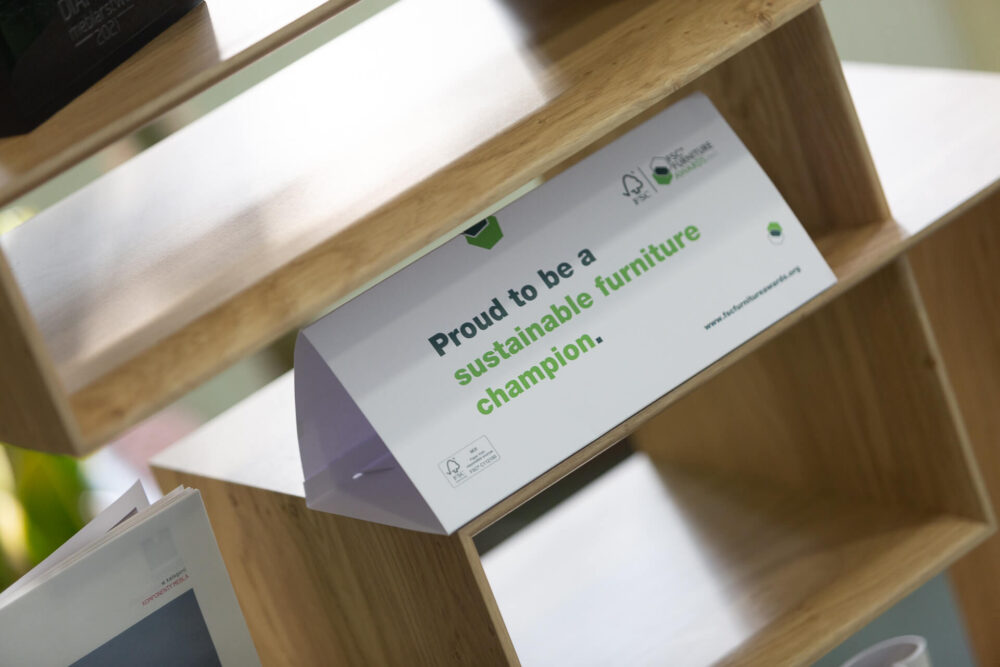This website uses cookies so that we can provide you with the best user experience possible. Cookie information is stored in your browser and performs functions such as recognising you when you return to our website and helping our team to understand which sections of the website you find most interesting and useful.
The basics of sustainability
Sustainability is a concept that has gained prominence in many industries in recent decades, including the furniture industry. Put simply, sustainability is development that meets the needs of the present without compromising the ability of future generations to meet their own needs. In the context of the furniture industry, this means creating products in a way that minimises negative environmental impacts, supports communities and is economically viable.
Sustainability in the Furniture Industry
In the furniture industry, sustainability encompasses several key aspects:
- Environmental: This means choosing raw materials from sustainable sources, such as certified wood, and using production processes that are less harmful to the environment, such as reducing CO2 emissions and minimising waste.
- Social: Sustainability in furniture also includes social responsibility, such as providing good working conditions, supporting local communities and promoting fair trade.
- Economic: It involves creating durable, functional and aesthetically pleasing furniture that is affordable for consumers and ensures long-term profitability for the company.
Sustainability in the furniture industry is not only a response to growing environmental and social demands, but also a way to build lasting brand value and increase competitiveness. Companies that adopt sustainable practices not only contribute to environmental protection, but also build stronger relationships with customers and partners who increasingly value environmental and social responsibility.

The importance of sustainability to the furniture industry
As one of the key industries, the furniture industry has a significant impact on the environment and society. This is especially true in Poland, which is developing very dynamically in this area. From the use of raw materials from forests, through production processes, to the distribution and disposal of furniture, each stage has its environmental and social consequences. Therefore, sustainability in the furniture industry is not only important, but essential to reduce the industry’s negative impact on the planet and ensure its long-term viability.
What areas can sustainable production support in the furniture industry? These include, but are not limited to
- Conservation of natural resources. Furniture manufacturing relies heavily on the use of wood, a raw material that is renewable, but only if it is sourced sustainably. Sustainable practices, such as using certified wood, help protect forests and biodiversity.
- Reducing the carbon footprint. Manufacturing processes in the furniture industry can generate significant CO2 emissions. Implementing sustainable production methods, such as energy efficiency and waste reduction, helps to reduce the carbon footprint.
- Social responsibility. Sustainability in the furniture industry also includes social aspects, such as ensuring decent working conditions and supporting local communities. Companies that act responsibly build a positive image and gain the trust of consumers.
It is important to emphasise that sustainability in the furniture industry is not only a matter of ethics, but also a strategic business decision. Companies that invest in sustainable practices secure their business future while meeting the needs of consumers looking for products that are made with respect for the environment.
Read also: Furniture in line with the green trend. Discover our inspirations →
Choice of raw materials
In the furniture industry, the choice of raw materials is fundamental to sustainability. Raw materials such as wood, metal, plastic or fabric should be chosen based on their origin, environmental impact and recyclability. At Melaco, since 2014 we have ensured that every wood product is FSC® (Forest Stewardship Council) certified, guaranteeing that it comes from sustainable sources where care is taken to protect forests and biodiversity.
Equally important, we source renewable and recycled materials that help reduce waste and pollution. We are successfully using polymeric film made from recycled granules – known as R-PET – in our production. Also very popular are the completely new FLORA fronts, which are finished with a film made from natural ingredients – salt and ethylene from raw pine oil. They offer a great look with the durability that consumers expect.
Choosing responsible suppliers
Partnering with companies that care about the environment and the community strengthens the value chain and underlines a company’s commitment to sustainable practices. Increasingly, manufacturers with a sustainability strategy are choosing to audit their contractors and select suppliers with environmental or social certifications. Auditing the supply chain for sustainability ensures consistency.
It can also be beneficial to work with local or indigenous suppliers. This contributes to the community and national economy and reduces the carbon footprint associated with transport.

Logistics efficiency: reducing the carbon footprint
In the furniture industry, logistics plays a key role in sustainability. Efficient supply chain and transport management can significantly reduce a company’s carbon footprint. This can be achieved through measures such as:
- Transport optimisation. Implementing fleet management systems and optimising transport routes helps to reduce emissions. Using fuel-efficient or electric vehicles is another step towards sustainable logistics.
- Compact packaging. Reducing packaging size and increasing packaging efficiency can significantly reduce transport costs and CO2 emissions. Innovative packaging solutions, such as modular or collapsible designs, allow more efficient use of loading space.
How do we ensure sustainable production at Melaco? Have a look: European Green New Deal in Melaco – how we care for the environment →
Production management: optimisation and automation
Managing production in the spirit of sustainability is not only about respecting the environment, but also about operational efficiency. The use of modern technologies and solutions is an important part of this process. These include:
- Lean Manufacturing. The implementation of lean manufacturing principles minimises waste and maximises efficiency. By eliminating waste at every stage of production, companies can reduce costs and environmental impact.
- Recycling of production waste. Systems for recycling and reusing production waste, such as sawdust or plastic production waste, help to close the material loop and reduce the environmental footprint.
- Automation and robotics. Automation of production processes not only increases efficiency, but also allows more precise use of raw materials, resulting in less waste.
- Production management systems. Digital production management systems enable better monitoring and optimisation of processes, resulting in more efficient use of resources and reduced environmental impact.
Read about our investment plans, including production improvements and efficiency: ‘You can’t stop in a crisis’. Dariusz Piotrowski on investments in Melaco →

A sustainable future is our common responsibility
At Melaco, sustainability is not just part of our strategy – it is our mission and the goal we strive for every day. We understand that the journey to fully sustainable production is an ongoing process that requires constant commitment and innovation. While there are many challenges ahead, we are determined to get closer every year to our goal of creating products that are environmentally friendly, socially responsible and economically viable.
Looking for a partnership based on the same values?
If concern for sustainable production is also an important value in your company, we invite you to contact Melaco. We are ready to collaborate and share our experience so that together we can create products that not only meet the highest quality standards, but also contribute to a better tomorrow. Together we can build a future that is sustainable, responsible and full of innovation.
Contact
Do you have questions? Contact us.
We will be pleased to answer all questions about MELACO’s offer, terms of cooperation and orders. Write or call us.
Contact
Melaco sp. z o.o.
ul. Ciepielowska 9
67-100 Nowa Sól
Poland
SALES DEPARTMENT
Agata Sroczyńska
Sales Coordinator
SALES DEPARTMENT
Beata Prałat
Sales Specialist

